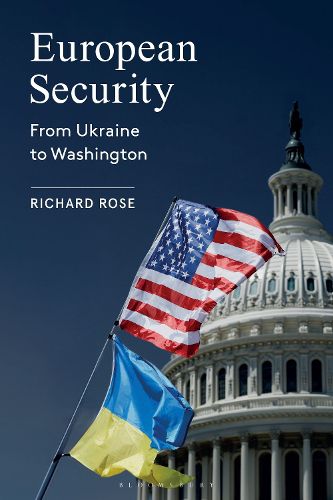Readings Newsletter
Become a Readings Member to make your shopping experience even easier.
Sign in or sign up for free!
You’re not far away from qualifying for FREE standard shipping within Australia
You’ve qualified for FREE standard shipping within Australia
The cart is loading…






Exploring the ebb and flow of European security from the end of the Second World War to the present day, Richard Rose examines why security cannot be taken for granted today and what this means for the future of security in Europe. Since 1949 military security from the Black Sea to Washington's Potomac River has been guaranteed by NATO with the White House in command. He reminds us that masses of Europeans enjoyed unprecedented economic security as the European Union has replaced competition in armaments with competition in a single European market. The fall of the Berlin Wall and the Soviet Union restructured the map of Europe and encouraged the United States to turn toward China. However, Vladimir Putin's attempt to revive a Soviet-style version of security by invading Ukraine has stimulated aid to Ukraine as it fights a proxy war to protect the security of Europe. Looking ahead, Rose asks whether European governments are able to defend themselves as America's commitment to Europe becomes less reliable; the challenge to Europe of helping fund the reconstruction of Ukraine; questions the conditions in which the European Union and NATO could admit Ukraine as a member; and sets out where Britain fits in as a NATO but not an EU member-state.
$9.00 standard shipping within Australia
FREE standard shipping within Australia for orders over $100.00
Express & International shipping calculated at checkout
Exploring the ebb and flow of European security from the end of the Second World War to the present day, Richard Rose examines why security cannot be taken for granted today and what this means for the future of security in Europe. Since 1949 military security from the Black Sea to Washington's Potomac River has been guaranteed by NATO with the White House in command. He reminds us that masses of Europeans enjoyed unprecedented economic security as the European Union has replaced competition in armaments with competition in a single European market. The fall of the Berlin Wall and the Soviet Union restructured the map of Europe and encouraged the United States to turn toward China. However, Vladimir Putin's attempt to revive a Soviet-style version of security by invading Ukraine has stimulated aid to Ukraine as it fights a proxy war to protect the security of Europe. Looking ahead, Rose asks whether European governments are able to defend themselves as America's commitment to Europe becomes less reliable; the challenge to Europe of helping fund the reconstruction of Ukraine; questions the conditions in which the European Union and NATO could admit Ukraine as a member; and sets out where Britain fits in as a NATO but not an EU member-state.